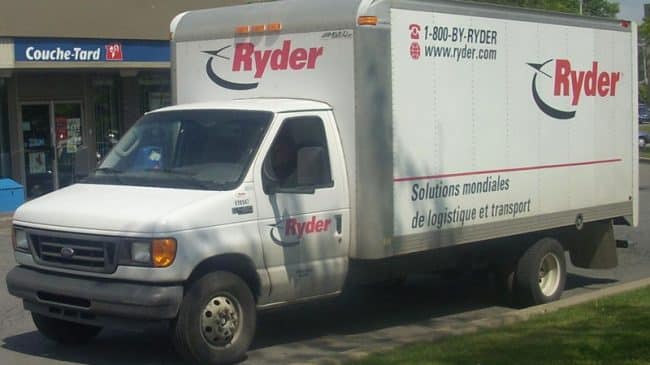On June 17th I testified before the House Ways & Means Committee at its hearing on “long-term financing of the Highway Trust Fund.” Testifying alongside me was Gov. Bill Graves, CEO of the American Trucking Associations. While ATA is a long-time opponent of expanded tolling, the hearing illustrated that there may be more common ground between advocates of public-private partnership (P3) concessions and commercial highway users than many people think.
In my testimony and the subsequent Q&A, I stressed four points:
- The importance of strengthening, rather than further diluting, the users-pay/users-benefit principle of highway funding;
- The need for Congress to set priorities, refocusing the Highway Trust Fund on truly federal concerns such as interstate commerce;
- The longer-term need to transition from per-gallon taxes to per-mile charges; and,
- The need to give states stronger tools to make greater use of P3 concessions, such as more private activity bonds (PABs), an improved Transportation Infrastructure Finance and Innovation Act (TIFIA) program, and increased tolling to rebuild aging Interstates.
In his prepared testimony, Gov. Graves made the usual trucking industry points, stressing their case for increased fuel taxes as the least-bad alternative and criticizing expanded tolling as among the worst alternatives. But during the extensive Q&A period (the total hearing lasted nearly three hours), Graves seemed far more open to considering alternatives.
Compared with other interest groups trying to shape the next reauthorization, I think we advocates of P3s have more points of agreement with ATA than with many others. Graves repeatedly stressed their support for the users-pay principle, stating at one point that “Once we start down the path of paying for roads and bridges without user fees, you will have a very hard time ever going back.” And despite his written testimony including several proposed oil-industry taxes as alternatives that ATA “could” support, he agreed with a Ways & Means Committee member that such taxes would be an unfair burden on non-highway users of petroleum.
He was also well-versed on the costs of traffic congestion to both motorists and truckers, and data on the extent of deficient bridges and poor pavement quality. Both problems hit trucking companies on their bottom lines, and congestion has an even bigger impact these days, with more restrictive federal hours-of-service regulations that can lead to a driver who gets stuck in congestion for an hour getting timed-out and unable to continue his trip.
What pleased me most was Gov. Graves’ positive comments on P3s and PABs during the Q&A portion of the hearing. “We think P3s have a place in this dialogue,” he said, especially for bridge replacements. He noted that most P3 concessions involve tolls as the revenue stream, and also equated the need for a return on investment with higher cost than if the project had been done by government-but that is a question on which data are available that could demonstrate the value proposition of P3s over conventional procurement. Later on, as a former governor, he expressed support for an increase in the cap on PABs, adding, “I want to take this opportunity to say, whether it is tolling, whether it is P3s, the private activity bonds-there is a place in what we need in the way of infrastructure for all these items. It is just that the underlying basis, in my opinion, still has to rely on the fuel tax.” Certainly in the near term, who could argue with that?
There is still a large gap between my position that the most important P3 opportunity facing us is toll-financed reconstruction and modernization of the Interstate highway system, and ATA’s strong opposition to tolling. But when you look carefully at their reasons, it’s understandable, based on their experience with 20th-century tolling as used by a number of legacy toll agencies (e.g., the Port Authority of New York & New Jersey and the Pennsylvania Turnpike Commission). When trucks use many tolled Interstates today:
- They pay twice, having to pay both fuel taxes and tolls for the same highway (except in New York and Massachusetts, where cumbersome fuel-tax rebates are available);
- They pay toll rates well in excess of the capital and operating costs of the highway, since politicians divert toll revenues for other transportation and non-transportation purposes;
- They still perceive the cost of toll collection as eating up 20 cents out of every dollar, compared to about one cent per dollar to collect fuel taxes.
- They also dislike trucks having to pay tolls to multiple agencies, getting multiple bills.
For much of the past year, I have been having discussions with various trucking industry people about Reason Foundation’s value-added tolling concept, under which any use of tolling to replace aging (non-tolled) Interstates would be done under a new model, aimed at creating a genuine value proposition for the industry. As in similar discussions with AAA, the concept would include restrictions to limit tolls strictly to the capital and operating costs of the replacement facilities, use only all-electronic transponder-based tolling (with its much lower cost of collection), and provide rebates on fuel taxes for the miles driven on newly tolled highways.
Constructive feedback from trucking contacts has helped me to shape a forthcoming Reason Foundation report that I believe presents a genuine value proposition for the industry to consider. Whether they will or not, remains to be seen. But I’m encouraged by the way Gov. Graves discussed these questions during the Ways & Means Committee hearing. Near the end, after repeating his concerns about tolls, he told the Committee, “As you can tell, I am a fan of the system we have got; it is the one we know. But I am not averse to discussing what a future would look like that might be different than that.”
I urge the P3 community to join me in having that discussion in coming months with this major group of highway customers.
Robert Poole is director of transportation at Reason Foundation. This article originally appeared in Public Works Financing.

